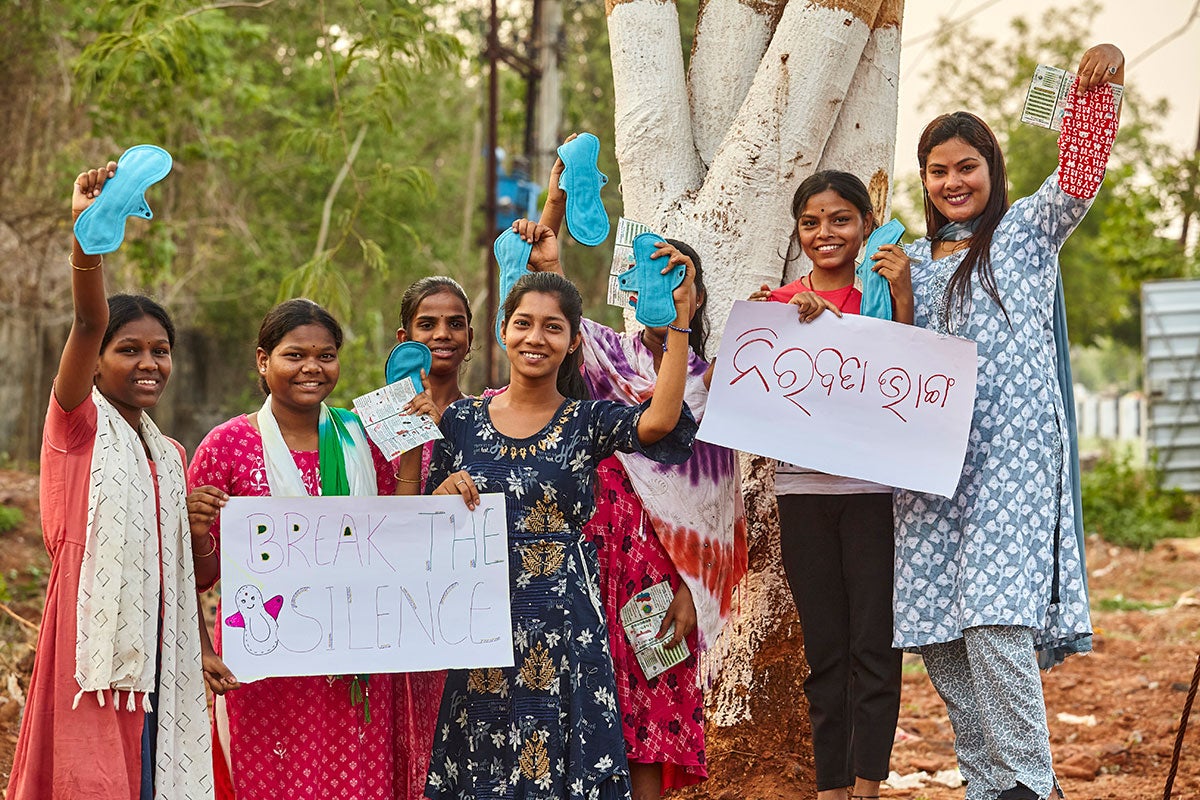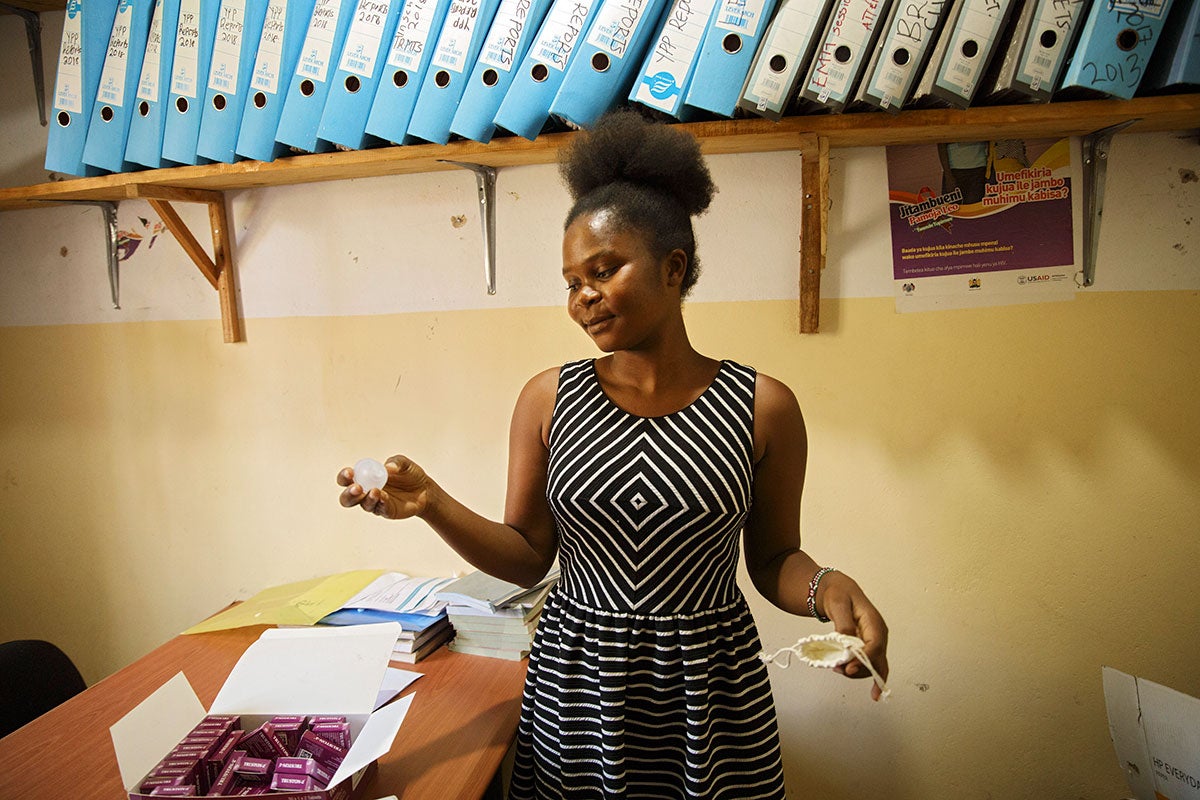Period poverty costs too much, take action to end it
Date:
On World Menstrual Hygiene Day, 28 May, the movement against period poverty celebrates 10 years of collective action by women and girls worldwide. Today and every day, make talking about periods a normal part of life and take action to end period poverty.

Every month, more than two billion people[1] around the world menstruate. Although a natural and healthy process, menstruation – or period – interrupts lives, rights and freedoms of millions of women and girls, because they cannot afford or access menstrual products, sanitation, and hygiene facilities, and lack education and awareness to manage their menstrual health and hygiene. Read more about the causes of period poverty and who’s affected in this explainer.
Period poverty has serious consequences.
Period poverty undermines education of girls and young women
Period poverty has steep opportunity costs. Girls and young women around the world are missing school days, because they lack the resources to adequately manage their menstrual health and hygiene.
Nearly two million girls aged 14-21 in the United Kingdom have missed a part day or full day of school per term because of their period – missing more school days because of their period than any other reason. In the Gambia, some girls skip school for five days every month because they cannot afford or access menstrual products and sanitary facilities – this equals to missing out on a month and a half of learning every year. In many countries, girls fall so far behind in schoolwork that they drop out of school entirely.
When girls and women lose their chance at education, they lose life-long opportunities for employment, to fulfill their potential and to contribute to our world on an equal footing to men.
Period poverty also has dangerous and immediate health consequences for girls and young women, pushing them into early and forced marriages, sexual abuse, or female genital mutilation (FGM) – because their period is seen as their “coming of age”. Studies in Kenya have shown that some schoolgirls engaged in transactional sex to pay for menstrual products, increasing their risk of HIV infection.
Ending period poverty is possible – and urgent
Period poverty is a policy and budget issue. By making menstrual products free or affordable, ensuring wider access to safe sanitation facilities in schools and workplaces, and changing social norms to reverse stigma, we can put a stop to period poverty.
In Niger, UN Women and partners supported the Government in integrating menstrual hygiene management in the National Gender Policy and Sectoral Programme for Water, Hygiene and Sanitation. Since then, 14 local water, hygiene and sanitation plans have been adopted and 500 million XOF (over USD 82,000) was allocated for addressing menstrual hygiene in the national budget. These policies and actions have finally broken the silence around menstrual health in Niger.
Advocacy to end period poverty, led by women and girls themselves, is showing promising results in many parts of the world. In 2020, Scotland became the first country to provide period products free of charge, including reusable options. Kenya began removing taxes on menstrual products as well as on the raw materials for their production in 2004, and by 2017 started distributing free sanitary pads in public schools. South Africa has delivered free disposable sanitary pads to poor women and girls since 2019, and Botswana has made free sanitary pads available in public and private schools.
Other countries like Australia, Canada, Colombia, India, Jamaica, Lebanon, Malaysia, Nicaragua, Nigeria, Trinidad and Tobago and Uganda have also lowered or scrapped taxes on menstrual products.

Five actions to end period poverty
- Support advocacy efforts in your country and community to remove the taxation on menstrual products and to increase access to menstrual products.
- Fund feminist women and girl-led movements and organizations fighting period poverty.
- Invest in improving data on menstrual health and hygiene.
- Make menstrual health and hygiene education compulsory in school curriculums, for example, through comprehensive sexuality education.
- Join the conversation online using #PeriodFriendlyWorld, and in community spaces, schools and places of work, to raise awareness, bust the myths and erase the stigma. Check out the campaign resources available at https://www.menstrualhygieneday.org
[1] Note: Existing menstrual health data typically refer to adolescent girls and women aged 15–49. Globally, this age group comprised nearly 2 billion females in 2022. However, non-binary and trans people also experience menstruation.